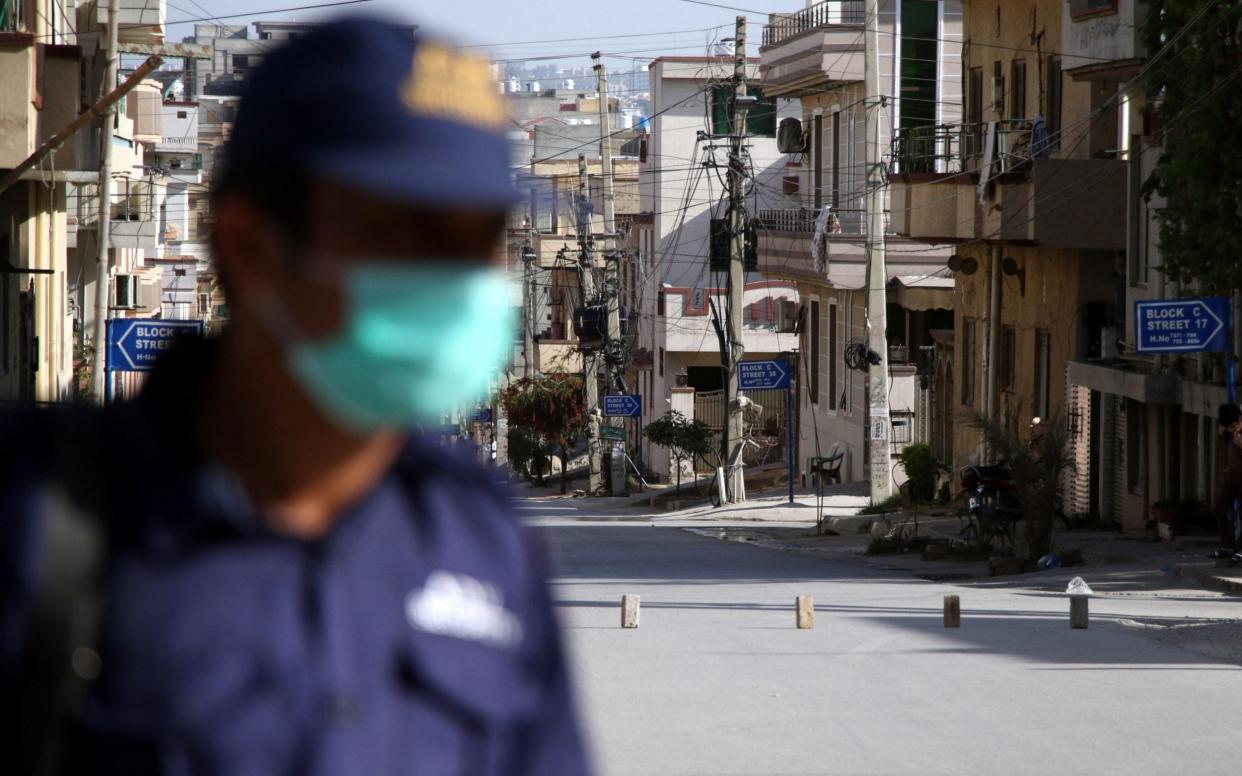Pakistan reimposes lockdown restrictions as infections surge for the third time


A third wave of cases surging through Pakistan’s cities risks being the country’s worst Covid-19 onslaught yet officials have warned as the country reimposed lockdown restrictions.
A quick resurgence of infections is being driven by the easy-to-catch UK variant and a widespread public failure to abide by mask and distancing precautions.
Daily case loads have quickly shot up in recent days to around 4,500, a level not seen since the country's first wave in June last year.
Wards are close to full in the province of Punjab, the country's most populous province, doctors’ leaders said. Low testing levels in a country of more than 220 million have meant epidemiologists have struggled to gauge the scale and extent of the spread of coronavirus, but officials now warn the worst may be yet to come.
Dr Faisal Sultan, a health special assistant to the prime minister, Imran Khan, said the current wave had the “potential to be worse than the first one in the summer of 2020”.
He cautioned against “complacency or visiting crowded places of any kind”. “Wear masks and educate those around you.” Dr Qaisar Sajjad, secretary general of the country's medical association, said the situation was “getting worse, day-by-day, because the people are not following the standard operating procedures and the government is not properly implementing them”.
“God forbid if the numbers increase more and more, then it will be difficult for the health workers to manage all these patients,” he warned.
Eid holidays due in early May to mark the end of the Muslim month of fasting supercharged last year's summer outbreak and are expected to do the same this year. Pakistan has so far recorded just over 14,000 deaths and more than 650,000 cases.
Though both these figures are though to be significant undercounts, the country has been praised by international officials for its response and appears to have avoided some of the high death tolls and crises seen elsewhere. Cases rose sharply last summer only to drop off unexpectedly.
A young population and a lack of internal travel are thought to have helped, while the government credits its targeted lockdowns of hotspot neighbourhoods.

The escape last year appears to have led to complacency for many. Polling by Gallup in December found that 57 per cent of people thought the threat from Covid-19 was exaggerated.
Delays to jab consignments from the worldwide Covax vaccine-sharing programme also mean Pakistan is a long way from being able to vaccinate itself out of a third wave. Vaccines arriving in the country so far have been donations from China.
Imran Khan was also accused of complacency last week when he was pictured leading a government meeting only days after announcing he had tested positive. The former cricketer said he had caught the virus during the country's recent hotly contested senate elections.
At the weekend he called on the public to wear masks and take precautions. Restaurants and shopping centres have been closed again, while infection hotspots have also been sealed. Mr Khan said Pakistan's handling of the virus had last year been an example to the world.
He went on: “I know, one year has passed and people don’t care about it but God forbid, if it continues spreading at the rate it is already, then our hospitals will be filled. And, the world is now short of the vaccine, as the countries, which had promised to provide the vaccine, are facing increase in cases and running short of it for their own people.”
Protect yourself and your family by learning more about Global Health Security

 Yahoo News
Yahoo News 
